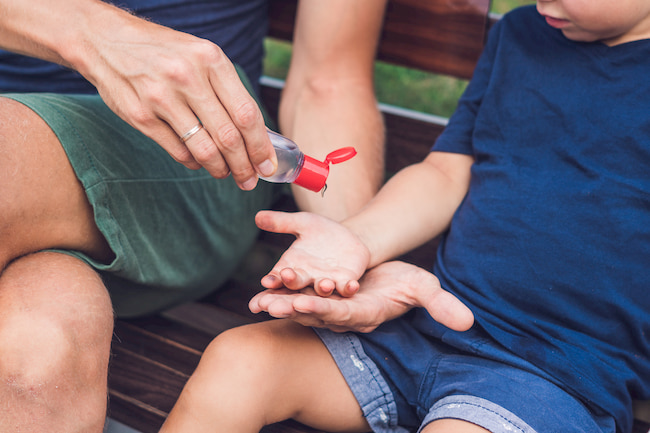You see it everywhere – at schools, doctors’ offices, public attractions, even grocery stores. But have you ever wondered how effective hand sanitizer really is?
On June 29, 2016, the U.S. Food and Drug Administration (FDA) issued a proposed rule requesting manufacturers provide additional scientific data to support the safety and effectiveness of active ingredients used in over-the-counter hand sanitizer and other topical consumer antiseptic rubs.
In early 2019, the FDA issued a follow-up rule establishing that certain active ingredients are not allowed to be used in over-the-counter hand sanitizers. According to Janet Woodcock, M.D., director of the FDA’s Center for Drug Evaluation and Research, “These products provide a convenient alternative when hand washing with plain soap and water is unavailable, but it’s our responsibility to determine whether these products are safe and effective so that consumers can be confident when using them on themselves and their families multiple times a day.”
One of many investigations
This isn’t the first time the FDA has questioned the validity of antibacterial products. It issued a similar rule for manufacturers of antibacterial soaps in December 2013.
At that time, the agency stated there was no evidence these soaps were more effective at preventing illness than washing with regular soap and water.
Recent studies have provided conflicting results. Korean researchers proved antibacterial soap performed about the same as regular soap for 20 different strains of bacteria. A year earlier, Rutgers University proved some antibacterial cleansers were more effective than regular soap in reducing certain types of bacteria.
The proper way to wash hands
We all know how important it is to wash hands, especially before preparing food or eating. But did you know you could be doing it wrong?
The Centers for Disease Control and Prevention (CDC) advises that washing hands with plain soap and running water is one of the most important steps consumers can take to avoid getting sick and to prevent spreading infections to others.
You need three things to do a complete job of washing your hands: soap, clean running water and patience. In fact the agency recommends washing hands for 20 seconds – or about as long as it takes to hum the Happy Birthday song twice. And rather than simply wash the fronts and backs of hands, the agency suggests adults and children wash between fingers and under nails.
If soap and water are unavailable, the CDC suggests people use hand sanitizers that contain at least 60 percent alcohol. While the center acknowledges alcohol-based sanitizer doesn’t kill every type of germ, it does provide some protection.
For additional information about the safe use of hand sanitizers and other antibacterial products, please contact your family physician. Need a doctor? Find one here.






